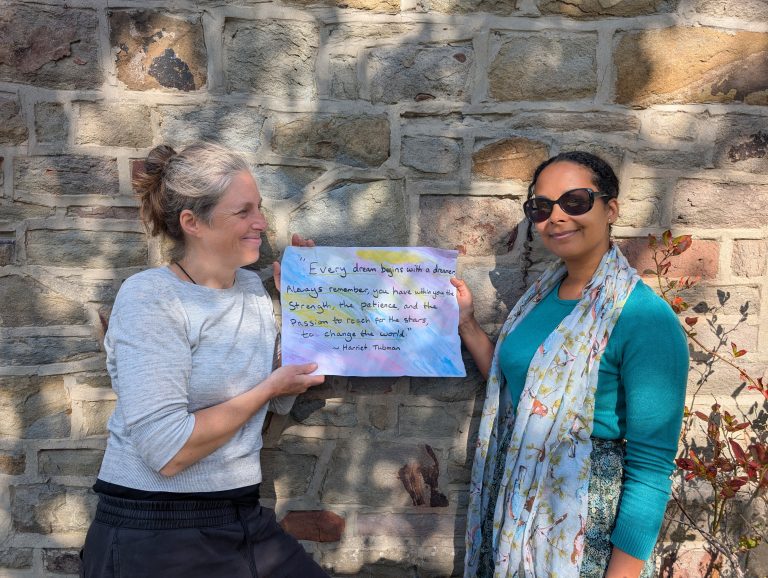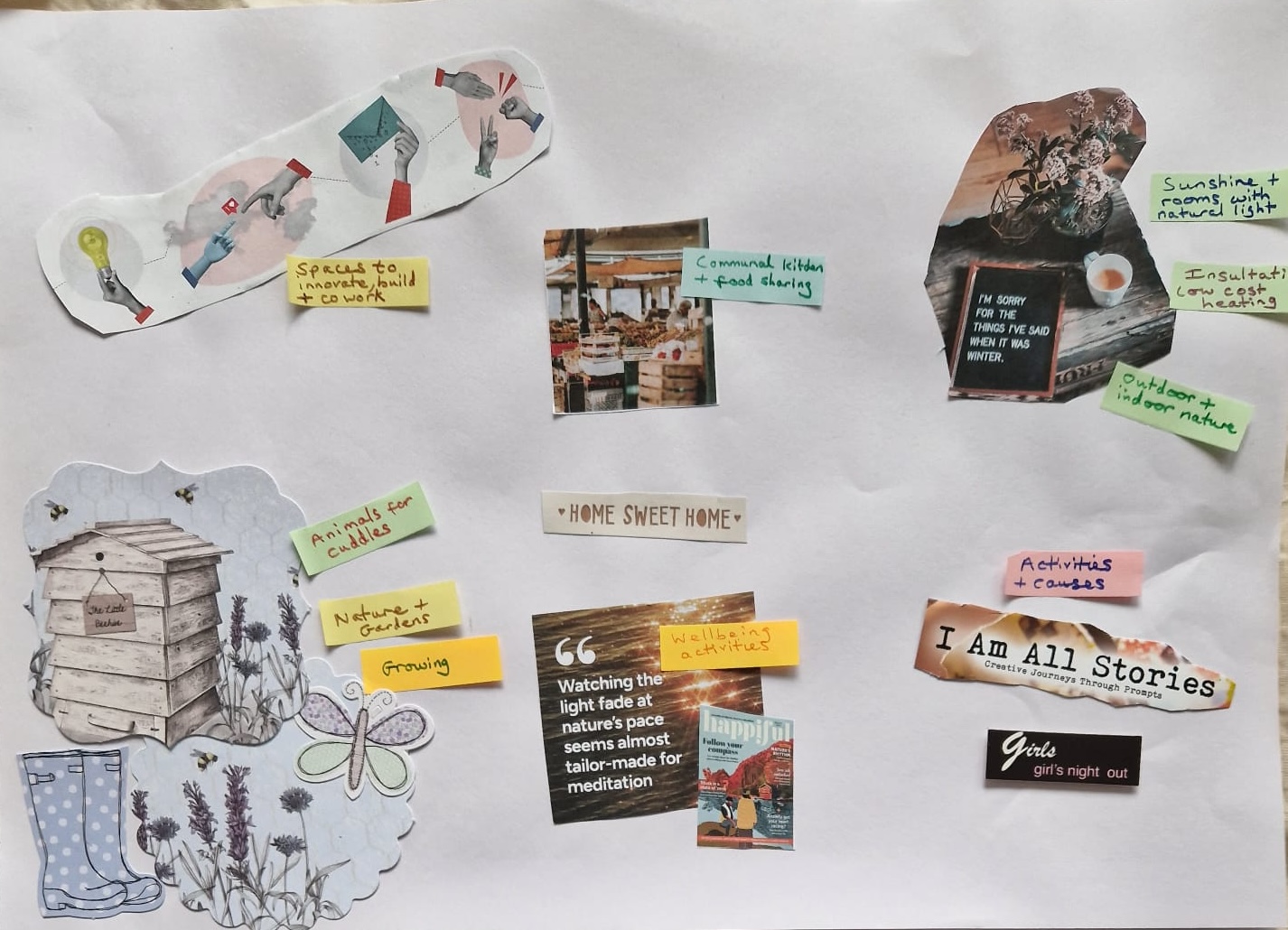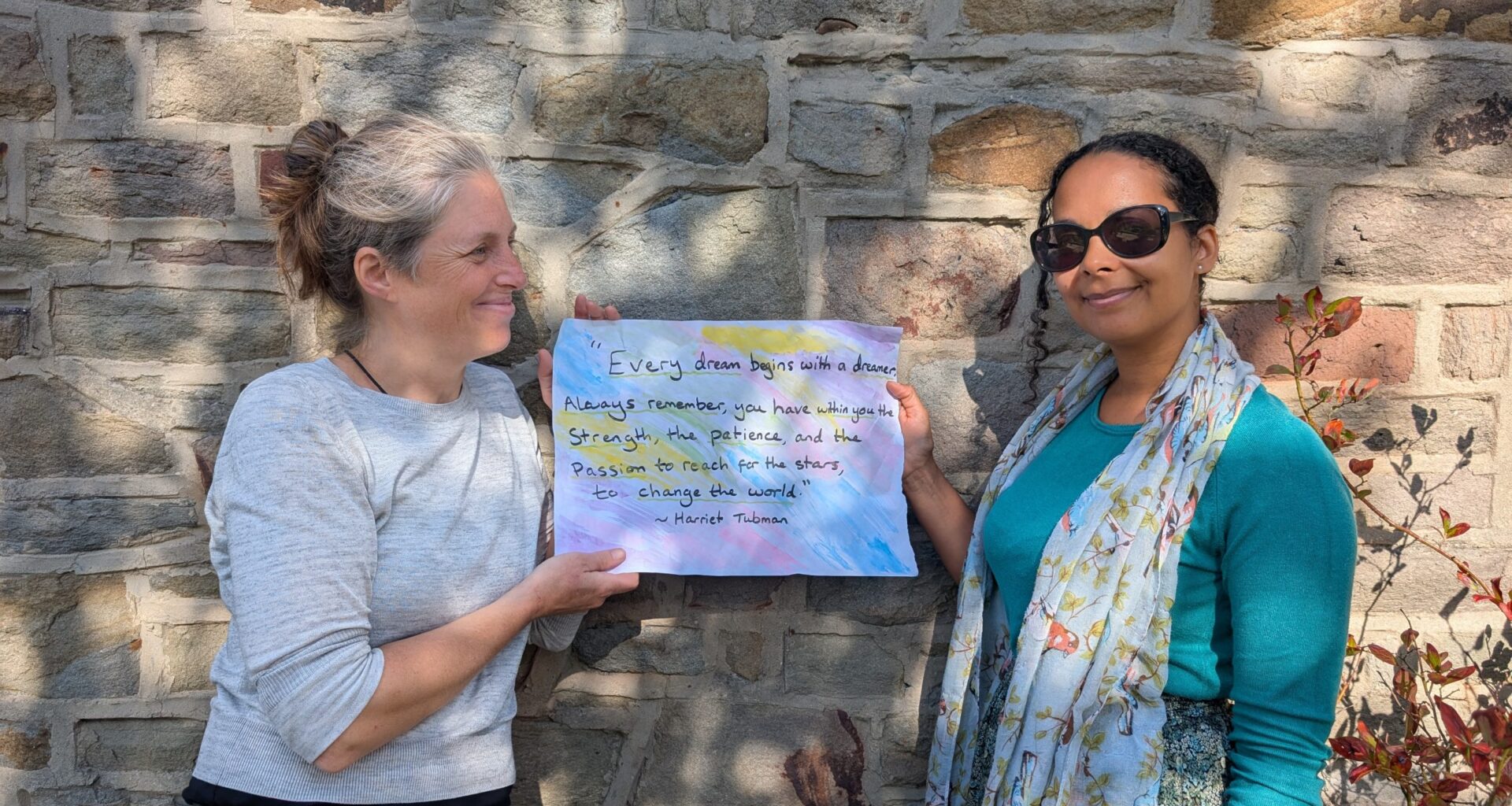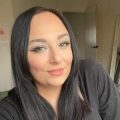
It’s a sunny day in East Bristol, made brighter by the sunflower yellow doors of Whitehall’s Beehive Centre.
This bustling community hub recently hosted a cohort of solo women, all with hidden disabilities. They had gathered to discuss their personal experiences and the societal barriers they face with their health.
Reporting on the stories that matter to you. Only with your support.
“I’ve experienced homelessness and unstable housing while being unwell at the same time,” says Lavender Rockson, 33.
Lavender founded Seen Sisters in 2024 as a non-profit and intersectional feminist community to support solo women with hidden disabilities between the ages of 25 and 55. The group hosts monthly in-person meetups, many of which take place at the Beehive centre.
Also present was Maddy Longhurst, Director of Tiny House Community Bristol (THCB). A community benefit society, it aims to tackle the housing and environmental crisis by supporting community-led tiny house projects.
I sit down with both of them in the Beehive Centre’s garden to discuss the recent findings from the group sessions reimagining what housing could look like, and the development of their community research report.Their pioneering collaboration has shed light on the need for policymakers to consider the needs of invisible disabilities when designing communities.
Invisible and isolated
Lavender arrived in Bristol last year, following a period of ill health and insecure housing. “In 2024, my health was the worst it’s ever been” she says, adding: “Filling out forms when you’re disabled is an accessibility problem itself”.
According to a 2023 report published by UK Parliament, 70 to 80% of disabilities are invisible. Lavender’s personal circumstances, as a woman of colour living with a hidden disability and facing unstable housing, drove her to create Seen Sisters to redress this.
“The term solo woman is defined as women – including those within the LGBTQ+ community – who are child-free, not currently in a long-term committed relationship and don’t have access to stable, affordable homes,” she says.
“People think it’s a niche group, but many women, myself included, have attended groups in the past and found conversations dominated by children and partners. Those of us who don’t have either can feel like our struggle is being invalidated”.
Lavender received an email from THCB looking for volunteers in 2024. “I’d always loved the concept of tiny homes,” she says. “But at the time, my health was at its worst and I didn’t feel physically able to volunteer”.
Lavender learned that THCB were looking to collaborate on a JEDI (Justice, Equity, Diversity and Inclusion) project. “I felt this was a great opportunity as a solo, mixed-race, disabled woman, to reimagine spaces and raise awareness for others like me”.
‘I knew we must include Seen Sisters’ voices’
Bristol’s tiny house community scheme is now over ten years old. Maddy Longhurst has been with the organisation for seven years. THCB creates ethical, affordable homes within communities.
Asked what prompted the collaboration with Seen Sisters, Maddy explains THCB had received funding from the Tudor Trust, a charity that funds organisations working toward global equity.
“We sat on the funding for the JEDI project for ages before it felt right to spend. I knew after speaking to Lavender that we must include Seen Sisters’ voices in our policies and plans for THCB,” she says. Though not considered a Seen Sister as she doesn’t have a hidden disability and has an adult daughter, Maddy is passionate about integrating these voices.
“Another reason this report was so important was to highlight the actual day-to-day needs of these women”, adds Lavender, citing the fact that tiny houses may not be suitable for people who are neurodivergent or experiencing mental illness.
Solo women with hidden disabilities need to be considered throughout the policy making process, not as an afterthought.
Lavender Rockson
For Maddy, understanding these challenges is crucial. “THCB wants to be accessible, but it’s easy when considering community builds to base them on your own needs. Hearing from these women highlighted that we must consider outside of that to be inclusive for everyone”.
However, due to a lack of funding and government support, building tiny homes under the radar in rural locations is the norm. This can create barriers for Seen Sisters who need things like nearby transport links and accessible parking spaces.
It’s also crucial to have a fixed address for hospital letters and official documents. Ting homes are not always suitable for this. “It’s still not legal for tiny homes to be built and used as fixed addresses in the UK without facing significant bureaucratic hurdles”, explains Maddy.
There’s currently no definition as to what constitutes a tiny house, though residential structures under 46 square metres are generally accepted as such.
Reimagining living spaces
Before the in-person sessions, which happened in late 2024, Seen Sisters invited solo women from Bristol living with invisible disabilities to complete a survey outlining their experiences. They received over 50 responses.
One survey participant with Multiple Sclerosis described the precarity of having a chronic health condition while living in unsuitable housing. “I’d love to join you, but I’m stuck in Southmead Hospital waiting to be discharged to a care home because my house isn’t suitable and I don’t have anybody at home,” she wrote.
 Lavender’s vision board. Credit: Steph Cullen.
Lavender’s vision board. Credit: Steph Cullen.
More than ten women participated in the face-to-face sessions, using vision boards and group discussions to explore what accessible, safe, comfortable, and affordable homes looked like to them.
“We needed to set the expectation during sessions as we aren’t able to grant these people new homes”, says Lavender. “It was a challenge getting the women to feel safe to reimagine their spaces, particularly those who’ve experienced trauma or domestic abuse. They don’t feel worthy of having a joyful living space.”
Common problems
Problems with social housing were common. One participant said: “When I moved into social housing, I felt free, but I needed support. The housing officer didn’t listen, and I was reprimanded for not doing enough to maintain the flat. How could I when I couldn’t physically scrub mould from walls?”
Women also focused on the Homechoice bidding system, saying they felt they had to accept whatever they were offered or lose their place in the housing list, even if it didn’t meet their health and access needs.
Another participant with PTSD talked about her experience living in a shared house. “I tried renting a room, but there was so much loud music from my housemates. When asked to keep it down, they laughed at me. I ended up sleeping in my car until I found another place.”
Others mentioned the benefits system. In particular, the paradox of having a disability that leaves them too unwell to work, and yet being considered not disabled enough to be on Personal Independence Payments or Universal Credit.
Upcoming benefit reform in 2026 was a key concern. The report highlighted the need to humanise benefit processes and change how national bodies prioritise solo women with invisible disabilities. Lavender says to do this, “Solo women with hidden disabilities need to be considered throughout the policy making process, not as an afterthought.”
Looking to the future
While the journey towards creating more accessible and inclusive living spaces is ongoing, for Lavender, the collaboration between Seen Sisters and THCB was vital.
“Seen sisters were most grateful for having a space to connect with other women with shared experiences to lift the stigma and celebrate who we are and realise we weren’t the only ones. [It was] a space to dream about how things could be different in day-to-day life.
We hope that we will be meaningfully considered in all things, from the local community to housing design. We are resilient, resourceful and can’t wait to partner with allies in the community and co-create a world in which we feel seen.”
Independent. Investigative. Indispensable.
Investigative journalism strengthens democracy – it’s a necessity, not a luxury.
The Cable is Bristol’s independent, investigative newsroom. Owned and steered by more than 2,500 members, we produce award-winning journalism that digs deep into what’s happening in Bristol.
We are on a mission to become sustainable, and to do that we need more members. Will you help us get there?


